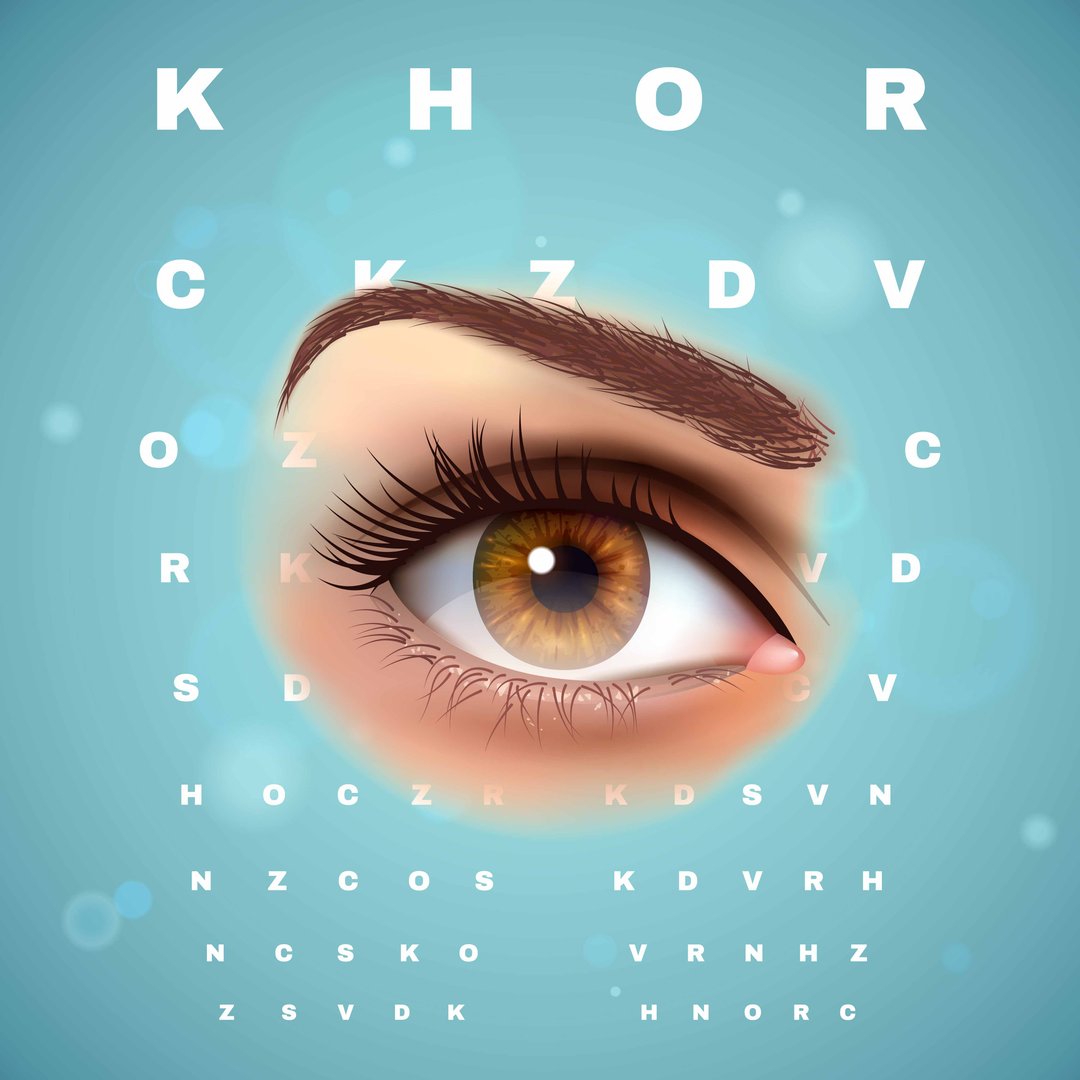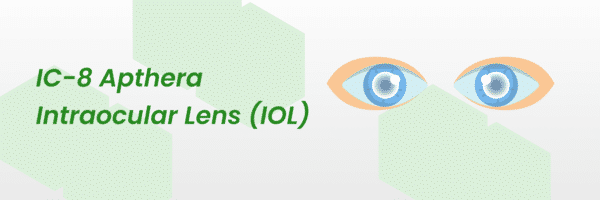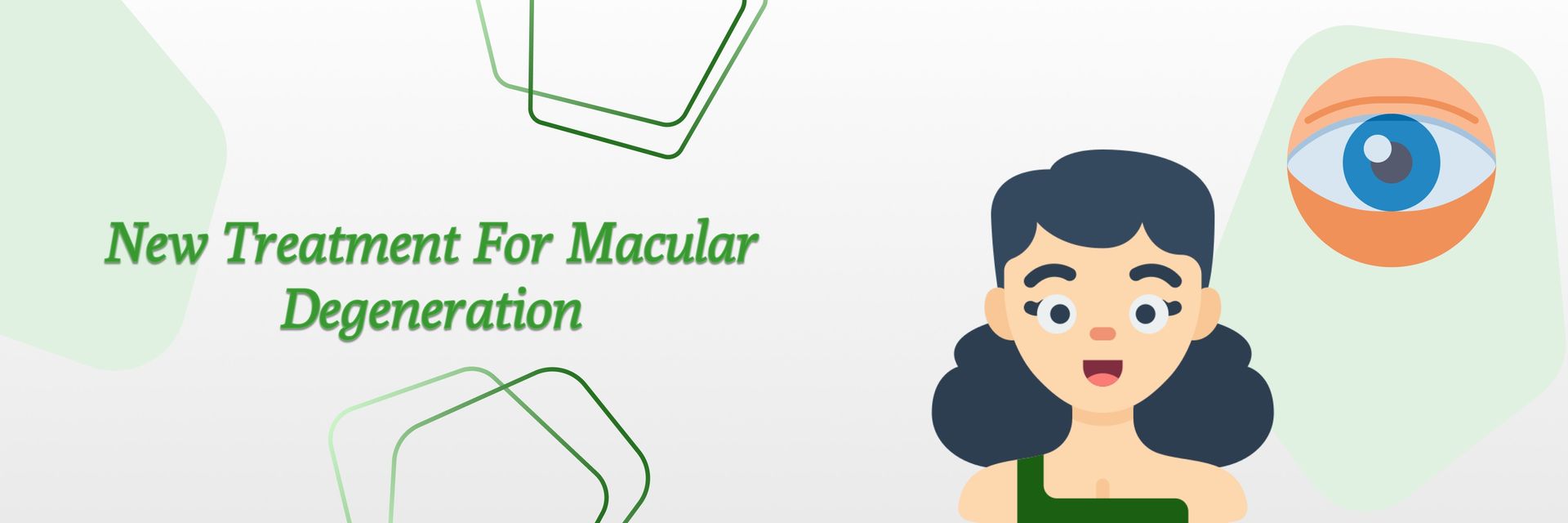Overview
The term "glaucoma after cataract surgery" describes the emergence or deterioration of glaucoma. A disorder marked by elevated intraocular pressure, after cataract surgery. It is a possible problem that might impair vision and calls for proper treatment to protect eye health.
Your health is too important to ignore – schedule your appointment now.
Can glaucoma develop after cataract surgery?
Yes, glaucoma can present itself following cataract surgery. Despite the fact that cataract surgery is successful and safe, it can result in elevated intraocular pressure or might cause glaucoma.
People who have had cataract surgery should keep an eye on their eye health and be aware of the warning signs and symptoms of glaucoma. which include blurred vision, eye discomfort, and elevated intraocular pressure. It is advised to schedule routine follow-up sessions with an eye care specialist to diagnose. and treat glaucoma if it does arise following cataract surgery.
After having cataract surgery, 5–10% of people may develop glaucoma. People with pre-existing risk factors - such as high intraocular pressure or a family history of glaucoma. are more likely to develop glaucoma following cataract surgery.
Glaucoma following cataract surgery is more common as people become older, especially among senior individuals. The majority of cases of glaucoma following cataract surgery can be managed to maintain vision with the right therapy.
Let's Identify the Glaucoma Symptoms After Cataract Surgery. Keep reading.
What are the symptoms of glaucoma after cataract surgery?

Following cataract surgery, glaucoma symptoms might range, they may include:
The fact that certain instances of glaucoma following cataract surgery may be asymptomatic emphasizes. The importance of routine eye exams to identify and treat glaucoma.
Want to know When Can Glaucoma Start After Cataract Surgery? Read more!
How soon after cataract surgery can glaucoma develop?
After cataract surgery, glaucoma can appear at any moment, but when it does depend on the patient. Sometimes, days or weeks following surgery, glaucoma may start to show symptoms. Acute or early-onset glaucoma is what this is. Even yet, it is more typical for glaucoma to worsen from a few months to several years following cataract surgery. Chronic or late-onset glaucoma is the name given to this condition.
It is not well known why glaucoma might arise following cataract surgery. There are some elements that may be involved. These consist of:
Intraocular pressure (IOP) increase:
Cataract surgery can cause a brief rise in IOP, which can strain the optic nerve and cause glaucoma.
Angle-closure:
Angle-closure glaucoma is a disease that can result from changes in the architecture of the eye's drainage angle. IOP may spike as a result of this.
Pre-existing risk factors:
Patients may be more prone to developing glaucoma following cataract surgery if they already have risk factors for the disease. such as high intraocular pressure, a family history of the disease, or structural abnormalities in the eye.
It's essential to remember that glaucoma does not always result from cataract surgery. The majority of cataract operations are successful and free of glaucoma-related problems.
Let’s look at the link between Cataracts and the risk of Glaucoma.
Take the first step to recovery. Get in touch with us for your treatment.
Do cataracts increase the risk of glaucoma?
Yes, cataracts can make you more likely to get glaucoma. Although glaucoma and cataracts are separate eye disorders. Research has suggested that people with cataracts may be more likely to get glaucoma than people without cataracts.
Although the precise link between cataracts and glaucoma is not known, some variables raise the risk of both conditions:
Shared risk factors:
Risk factors that both cataracts and glaucoma share include becoming older, having a history of eye problems in the family, and having certain illnesses like diabetes. Both cataracts and glaucoma may be influenced by these common risk factors.
Intraocular pressure (IOP) variations:
Cataracts may alter the fluid dynamics inside the eye, which may result in a rise in IOP. The main risk factor for glaucoma is elevated IOP.
Structural changes:
Cataracts can cause structural changes in the eye, such as modifications to the drainage angle or an increase in lens thickness. These anatomical alterations may interfere with the eye's regular fluid flow, raising the risk of glaucoma.
According to experts at Manhattan Eye, an eye clinic in New York,
“Glaucoma after cataract surgery can lead to vision loss at any point, not just cataract surgery. The only way cataract surgery can contribute to vision loss from glaucoma is by causing an incredibly high pressure during the surgery itself or immediately after from leftover viscoelastic in the eye after surgery.”
Let’s look at some treatment options for glaucoma after cataract surgery.
Can glaucoma after cataract surgery be treated?
Yes, glaucoma following cataract surgery is curable. The kind and severity of glaucoma that is present will determine the specific treatment strategy. Following cataract surgery, some typical glaucoma treatments include:
Medication:
To reduce intraocular pressure and control glaucoma, doctors may give eye drops or oral drugs. These drugs may assist in either enhancing or decreasing the production of ocular fluid.
Laser therapy:
Several laser operations, including laser peripheral iridotomy (LPI) and selective laser trabeculoplasty (SLT). It can be carried out to enhance the outflow of fluid from the eye and lower intraocular pressure.
Surgical interventions:
Trabeculectomy, tube shunt implantation, or invasive glaucoma surgeries (MIGS) may be advised in more severe instances or when medicine and laser treatment are inadequate. The purpose of these operations is to provide other channels for fluid outflow that will reduce intraocular pressure.
Combination therapies:
To control glaucoma following cataract surgery, it may be necessary to use a mix of prescription -
- drugs,
- laser therapy,
- and surgical procedures.
It is significant to highlight that glaucoma treatment programs following cataract surgery are customized to meet unique requirements. After cataract surgery, preventing glaucoma and reducing its potential effects need early identification and effective therapy.
Take a look at the strategies to protect against glaucoma after cataract surgery.
Can glaucoma after cataract surgery be prevented?
After cataract surgery, glaucoma may not be prevented, but there are procedures that may be done to reduce the risk and improve eye health. Here are some actions that may be helpful:
Regular eye exams:
It's important to have regular eye exams before and after cataract surgery. These examinations enable the early identification of any alterations in eye health. Regular monitoring allows for quick treatment and intervention if glaucoma arises.
Pre-operative assessment:
Extensive pre-operative evaluations can assist in identifying patients who may be at increased risk for glaucoma after cataract surgery. Eye care experts can develop personalized management plans and watch these patients after surgery by identifying these risk factors.
Intraocular pressure monitoring:
Monitoring intraocular pressure is crucial since glaucoma is increased by raised intraocular pressure (IOP). Regular IOP readings can help identify any unusual swings and direct required action.
Individualized treatment plans:
The course of treatment for every patient should be based on their individual requirements and risk factors. Depending on their unique situation, this can entail using certain drugs, prophylactic laser treatments, or other approaches.
Changes in lifestyle:
Living a healthy lifestyle, which includes getting regular exercise, eating a balanced diet, and quitting smoking. may improve eye health in general and lower the risk of glaucoma.
Do you know The Importance of Regular Follow-Up Following Cataract Surgery?
How important is a regular follow-up after cataract surgery to detect glaucoma?
It is crucial to follow up following cataract surgery on a regular basis to check for glaucoma and to ensure general eye health. The reasons are mentioned below:
Glaucoma risk assessment:
Following cataract surgery, regular follow-up visits enable eye care doctors to determine your personal risk of developing glaucoma. They may take into account things like pre-existing risk factors, the surgical approach, and your recovery from the procedure. The assessment assists in determining the required monitoring frequency and intensity.
Early detection:
Glaucoma appears over time and may not show any symptoms. Regular follow-up consultations offer the chance for thorough eye examinations. including intraocular pressure readings and an assessment of the optic nerve. Even before symptoms appear, these tests allow for the prompt identification of any glaucoma-related alterations or indications.
Planning for treatment:
Glaucoma detection during follow-up visits enables the early implementation of effective treatment modalities. The higher the likelihood of maintaining vision and avoiding more harm, the sooner glaucoma is recognized and controlled.
Monitoring the efficacy of therapy:
For patients who experience the development of glaucoma following cataract surgery, routine follow-up visits allow eye care providers to keep track of the outcomes of therapeutic initiatives. If required, changes can be made to
- prescription drugs
- laser treatments, or
- surgical procedures to ensure that intraocular pressure is controlled, and that glaucoma is managed.
Evaluation of eye health:
Beyond glaucoma, routine follow-up visits offer a thorough assessment of your eye health, enabling the identification of any further possible problems or difficulties. Examining the lens implant, measuring visual acuity, and gauging eye health are all part of this process.
In conclusion, following cataract surgery for the onset of glaucoma. identify any early symptoms, start treatment right once, and assess general eye health.
Your well-being is our priority - call us to book your appointment today.
References:







